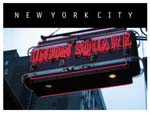 |
 |
| current issue |  |
past issues |  |
send a letter/news |  |
address update |  |
advertise |  |
about us |  |
alumni home |
Features
Suite SuccessPage 2 of 4
In the 20th century, the hotel had hosted presidents and celebrities, not to mention the negotiators in the peace talks that ended the Russo-Japanese war in 1905. After it closed in 1983, many in the community worked hard to save the landmark hotel from demolition. In 2003, Varley was charged with opening the newly modernized and restored building under the flag of a Marriott Hotel and Resort. This would not be a "soft" opening. Every room was booked for opening night. The ceremonial events would have the attention of the press and even the Japanese government, which was sending a representative.

|
Several days before the opening, the building hardly seemed ready. The ballroom chandeliers lay in pieces on the floor—thousands of crystals waiting to be hung by hand. There were some 150 laborers still hard at work on the $25 million renovation, while 150 hotel workers were training for opening day. Still, Varley wasn't worried. He knew that, like the chandeliers, everything would come together.
Varley loves the process of opening a hotel, and as vice president in charge of operations for Ocean Properties, Ltd., he has had many opportunities to do so. "Getting involved with all the aspects, the design, layout, hiring people—it's very rewarding," he says. "It's a tremendous amount of work because it's so labor intensive. You're relying on people, not technology. How well you can make it all happen when, behind the scenes, there's chaos—that's exciting."
After graduating from UNH, Varley entered a management-training program with Hyatt Hotels and was later on the team that opened the Hyatt Grand Cypress. In 1984, he joined Ocean Properties, a company that owns 110 properties in the United States and Canada, and became the general manager of what is now the Marriott Delray Beach Hotel.

|
Even in a hotel's everyday operations, Varley finds plenty of exciting "back-of-the-house" chaos. He cites a recent example at the 161-room Wentworth on a Saturday this past summer. All of the guest and function rooms were booked. There were wedding receptions taking place. And then an old pipe broke outside the building. For 18 hours, the hotel didn't have any water. Not a drop. Bottled water was quickly brought in; employees lugged five gallon bottles so they could wash dishes and prepare food.
"In the back of the house, it was a little frantic," he recalls. "But walking in, no one knew anything. That's how it goes. Every day, it's chaos. But it's positive chaos, positive energy."
It Takes a City
A large hotel, says Paul Kirwin '79, is like a small city, with separate companies that manage the banquet facilities, the restaurants, the spas and the guest rooms. Consider just the check-in process: You pull up, a doorman ushers you in, a bellhop takes your bags, the smiling desk clerk hands you the room key; there's an elevator attendant to shuttle you to your room. So far you've had contact with four different people—and you haven't even unpacked your bags.

|
"The service a guest receives takes double the effort behind the scenes," says Kirwin, president of Carlson Asia Pacific and Carlson Hotels Asia Pacific. It can easily take 1,000 employees to run a 1,500-room hotel. "A lot of coordination is required above the technical support," he notes, agreeing with Varley and Dougherty. "The key," he says, "is a lot of work done the old-fashioned way, with good communication."
Because of his dual roles, Kirwin spreads his time between developing the companies' business strategies and goals and evaluating their performance. As president of Carlson Hotels Asia Pacific, he works with existing hotel owners and investors as well as with the development team on new hotel projects. The company has 43 locations in 11 countries from Seoul to Sydney, Tahiti to Mumbi, and operates under several brand names including Regent International Hotels, Radisson Hotels and Resorts and Park Plaza. Kirwin oversees all aspects of hotel operations and has regional offices in Sydney, Tokyo, Shanghai and New Delhi.

|
Understanding how different societies do business has been critical to Carlson's success around the world—and to Kirwin's leadership role within Carlson. He gives an example: The limited-service hotels that have gained in popularity in America wouldn't make it in Asia. "There isn't the same profit pressure here in Asia as there is in the U.S. 'Face'—status—is really important to Asians. They very much want service," he says. The Asian culture views serving as a noble and respectable thing to do, he adds. And having a role in creating jobs is also honored.
Some cultural differences present challenges. "The Chinese like as few outside people as possible connected with their hotels and the owner is usually on staff," Kirwin notes. Still, it is gratifying to be doing business in these markets. "Both China and India have more than a billion people; both were previously two of the poorest countries in the world," he says. "And now, history is being made because they're an open market."
Page: < Prev 1 2 3 4 Next >Easy to print version

